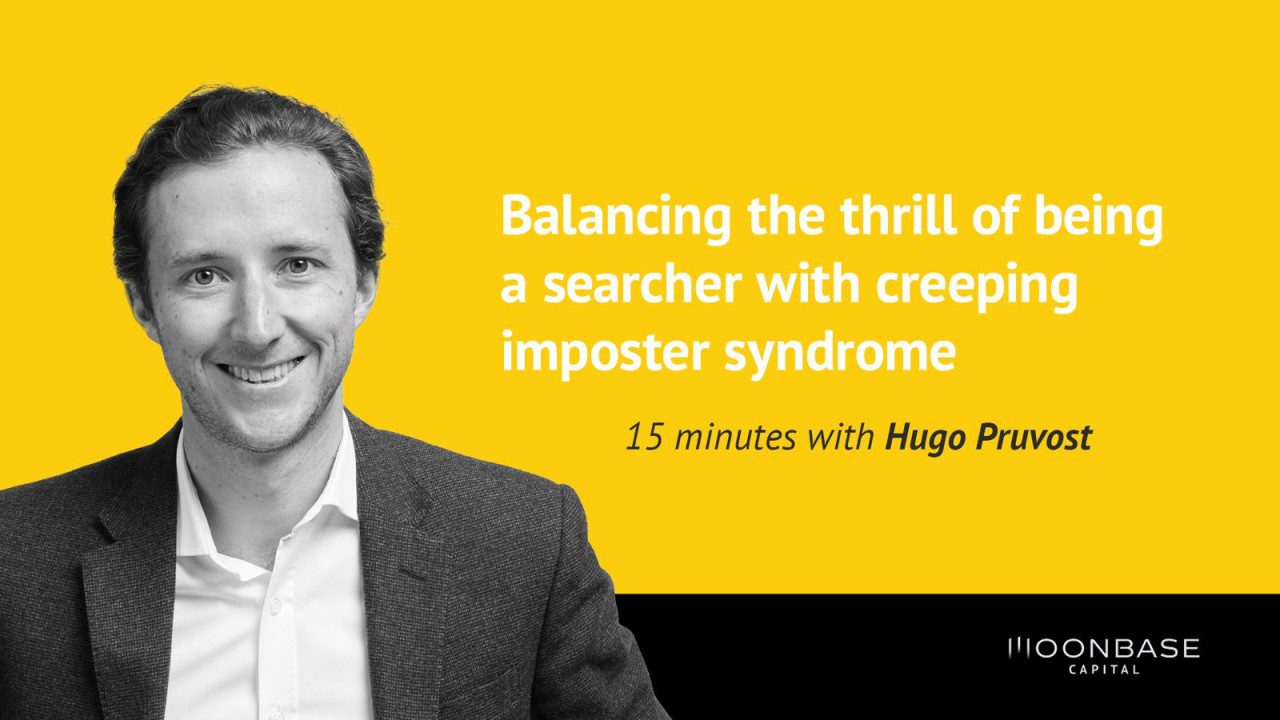15 minutes with… is a Moonbase Capital series that picks searchers’ brains on current market conditions, what challenges they are facing and the actual technicalities of what it takes to be a searcher.
Hugo Pruvost, founder and managing partner at Paris-based search fund Mors Transmission, is on a mission to find, acquire, and grow a profitable SME business in France, backed by a team of 17 investors.
Sneak peek at Hugo’s origin story: Having explored over 40 countries and lived in five of them, Hugo comes from a very entrepreneurial family.
A civil engineer by training, he had worked in the financial and strategy departments of large industrial corporations for seven years, which included handling project financing, M&A and post-merger integration activities. Hugo then decided to take charge of his destiny once again and fulfill his entrepreneurial ambitions. He joined INSEAD where he learned about search funds, and today, heads Mors Transmission.
MC: Why did you decide to become a searcher?
HP: Going to INSEAD was a big investment, but I wanted to do something truly ambitious and get out of a regular job. I fell in love with search funds. The potential of becoming a CEO right after the MBA was attractive to me, especially given my background with M&A and post-merger integration. I also loved the fundraising aspect of it, which made me feel that I wouldn’t be on this journey alone and was very comforting. Since I also had to repay my MBA loan, it was a much better opportunity for me to become a searcher, as opposed to being the founder of a startup without any income.
MC: What’s the best part of your job?
HP: Firstly, the fact that I’m completely my own boss and can set up my own process gives me a great sense of freedom. The downside is that it can be a lonely journey – it’s easy as a 31-year-old aspiring CEO to have imposter syndrome when discussing with SME owners and brokers.
MC: How do you deal with imposter syndrome?
HP: It’s tricky, but I always try to remind myself that I am here for a reason, that I’ve achieved some milestones and that my investors are backing me because they are confident in what I can do. Fear can prevent you from achieving great things, which is why I try to be aware of its existence, acknowledge it, talk about it – like right now, for example, and move forward with it. What definitely helps is surrounding yourself with people in the same scene – the human touch truly helps with handling your own emotions. It’s because of that that my journey so far has taught me to fundraise and convince investors, brokers and SME owners of my strengths. Given that this is new to me, the imposter syndrome has become quite frequent, but acknowledging it and working with it makes things a lot easier.
MC: Are you focusing on certain sectors in your search for acquisitions?
HP: I’m currently looking for SMEs in the B2B services sector with an at least 50% share of recurring business. These include building maintenance services, such as heating, ventilation, and climatization maintenance, as well as roofing businesses. One aspect that makes these businesses particularly attractive for me is that their services are critical for customers, which prevents them from easily falling victim to the macroeconomic environment. They offer very defensive and needed services, despite what the economy is up to. Another sector I’m looking into is software and tech-enabled services that have a strong position in a specific vertical market.
MC: How do you source your industry data?
HP: We are lucky in France because company data and financials are centralized in the public domain, which makes our life quite easy. The downside is that everyone is fishing in the same pond, including M&A bankers, private equity players and searchers. Hence, the companies are often quite solicited and contacted. However, only 30% of companies in France make their financials available in the public domain. So the question is always how to tackle the remaining 70% of French businesses. There must be great opportunities there, but it’s a bit like shooting in the dark.
MC: What do you look for in those companies beyond the usual financial criteria?
HP: The market these companies operate in is one of the key aspects during my search. I’d rather buy an average company in a great market, than a great company in an average market. The company can always be developed, but it’s very difficult to change a market or its dynamics. The remaining criteria are the usual ones for search funds, such as the structure of the company, its dependency on suppliers, the diversification of its customer portfolio, the impact of macroeconomic developments on the operations, the company’s performance during COVID-19, its growth projections, turnover of employees, and whether I’d make a good fit for the company.

